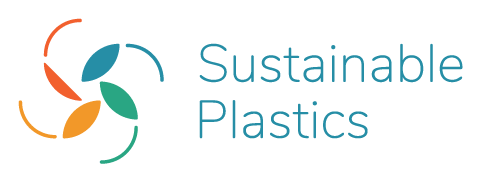The SUSTAINABLE PLASTICS Consortium receives support from the Recovery and Resilience Plan to promote the Circular Economy of Plastics.
The project presented by the SUSTAINABLE PLASTICS Consortium, led by LOGOPLASTE INNOVATION LAB and Associação Portuguesa da Indústria dos Plásticos-APIP (Portuguese Plastics Industry Association), has been approved by the Mobilizing Agenda Coordination Commission, aiming to promote the green transition of the Plastics Industry towards the Circular Economy.
SUSTAINABLE PLASTICS was one of the first contracts signed under the Mobilizing Agendas for Business Innovation, part of the Recovery and Resilience Plan, in a public ceremony presided over by Prime Minister António Costa.
The SUSTAINABLE PLASTICS project aims to be the Mobilizing Agenda for Sustainable Plastics in Portugal, capable of driving the sector’s transition to a truly circular economy. It arises from an initiative by APIP, led by LOGOPLASTE INNOVATION LAB, and intends to mobilize the private sector, national authorities, universities, and citizens, contributing to the goals of the European Circular Economy. The initiative is based on three pillars:
- Reduction of greenhouse gas (GHG) emissions
- Increased resource efficiency
- Job creation
Given the complexity of the value chain of the Plastics Industry, which involves a large number of stakeholders (e.g. plastic material and raw material producers, transformers, machinery and equipment manufacturers, brand owners, retailers and distributors, waste management agents, among many others), it has become essential to promote the creation of an innovation ecosystem capable of involving all these economic agents, as well as consumers, in addressing the challenges presented by the Circular Economy.
The Consortium brings together 39 companies and 10 non-business entities from the Scientific and Technological System, with the aim of covering all segments and subsectors of the Plastics Industry and addressing the main challenges faced by the agents of this new Extended Value Chain. Thus, organizations have been selected that, benefiting from technical, organizational, and technological capabilities and competencies, enable the ambitious goals and objectives of the sector’s transition to the Circular Economy, also contributing to a more dynamic, export-oriented, and highly qualified country.
The objectives of SUSTAINABLE PLASTICS are:
- Introduce 21 innovative products to the market – adding value to the Circular Economy of Plastics and consumers
- 36 new patents – registering technological and scientific developments
- Scientific publications – sharing knowledge at the national and international levels
- 30% reduction in greenhouse gas emissions associated with production processes
It is expected that by December 2025, this Agenda will involve approximately 427 highly qualified human resources in the fields of science, engineering, and technology, promote over 80 training actions, and create new jobs.
SUSTAINABLE PLASTICS proposes a total investment amount of €39,161,831.64 (thirty-nine million, one hundred and sixty-one thousand, eight hundred and thirty-one euros and sixty-four cents) and will receive a national contribution of €24,447,875.19 (twenty-four million, four hundred and forty-seven thousand, eight hundred and seventy-five euros and nineteen cents). The project will be completed with concrete results by December 31, 2025.
